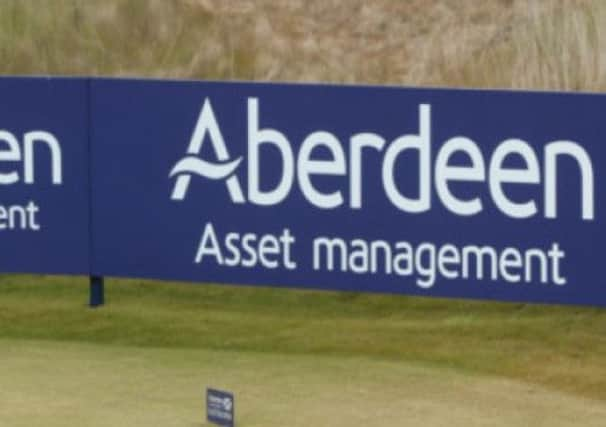Swip swoop creates Scots funds powerhouse in Europe


The addition of £136 billion of assets from Swip will take the total to £336bn, making it the continent’s biggest independently-listed fund manager. The Swip name will be ditched as the two companies integrate their operations over two years.
The deal prompted speculation that Aberdeen was being “fattened up” ahead of putting the combined group on the market, though Gilbert preferred to talk about his immediate plans to forge a company that can win more business across the Atlantic.
Advertisement
Hide AdAdvertisement
Hide AdSpeaking to The Scotsman, he said: “This takes us to number one [in Europe] and into the top ten globally, allowing us to compete with the US. It is a great deal for Edinburgh, which will become a big office.”
The all-shares deal gives Lloyds a 9.9 per cent stake in Aberdeen, which at 420p per Aberdeen share valued Swip at £553 million. There is a further performance-related payment of £100m. Aberdeen’s shares soared by 14.7 per cent to close at 489.7p, valuing the deal at £644m.
Aberdeen is also forging a strategic distribution partnership with Lloyds that embraces the latter’s wealth, insurance, commercial banking and retail businesses. The Investment Solutions division of Swip manages £15bn and is responsible for the design, development and management of products for Lloyds’ wealthier clients.
Swip has revenue of £234m of which Investment Solutions accounts for £17m. Gilbert said the deal was “not prefaced on cost-cutting” and said he had “no idea” where a report of 150 job losses came from. However, analysts say the figures produced yesterday indicate £50m of cost savings over 12 months.
Gilbert said Aberdeen’s board had been looking at the deal since the turn of the year as a means of shifting the focus of the company away from equities and into more fixed income and property.
“This looked like the ideal transaction to achieve that,” he said. He revealed that it was the decision of Lloyds to include Investment Solutions that helped swing Aberdeen’s board firmly in favour of doing the deal.
He was dismissive of critics who claim Aberdeen has a poor record of return on acquisitions, saying there were examples to the contrary. Barclays analysts were supportive on the Swip deal, particularly on acquiring the wealth book. However, Mark Williamson of Peel Hunt noted Aberdeen has acquired largely low-margin, ex-growth life assets that have been acquired cheaply.
“While much is being made of the distribution agreement with Lloyds, it is harder to identify when any of these types of deals have worked historically and I’m sceptical of the benefits that will accrue. After exceptional costs, the deal is only marginally earnings enhancing,” he said in a note published after a briefing with Aberdeen management.
Advertisement
Hide AdAdvertisement
Hide AdHe further claimed that while the deal was being presented as a shift away from a reliance on equities, it may be driven by plans to sell the business. “Being cynical, it may… be a case of fattening the goose ahead of selling the entire business,” he said. “Add £136bn of assets cheaply (0.4 per cent of assets under management) and then sell them on at an Aberdeen multiple (2.5 per cent). That would be the best outcome for Aberdeen’s shareholders in my view because strategically it is hard to see this deal as being strategically strong.”
The company brought forward its final results which revealed a 39 per cent rise in underlying pre-tax profits to £482.7m on a 24 per cent rise in revenue to £1.08bn. The board proposes a final dividend of 10p (2,012: 7.1p) making a total of 16p (11.5p).